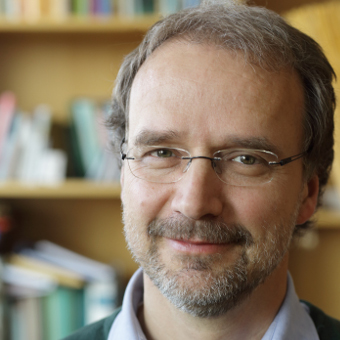24.07.2018 News
Food unspecific Biotechnology/Systems biology
Merck invests in cultured meat
The German pharma company Merck is investing in the development of cultured meat by the Dutch start-up Mosa Meat.
24.07.2018 News
Food unspecific Biotechnology/Systems biology
The German pharma company Merck is investing in the development of cultured meat by the Dutch start-up Mosa Meat.
23.07.2018 News
Food Microorganisms Agriculture sciences
Bacteria protect the eggs of the wool beetle from fungal attack. According to Mainz researchers, the bacteria obtained the mechanism through natural gene transfer - possibly even from marine organisms.
30.07.2018 News
unspecific unspecific Biotechnology/Systems biology
Molecular biologists from Freiburg have constructed intelligent materials from biological modules that can absorb and process information.
25.07.2018 News
Food Plants Agriculture sciences
The Court of Justice of the European Union declared that crops bred via the gene-editing tool CRISPR-Cas are "GMOs" and are to be regulated as such.
06.08.2018 News
Chemistry Microorganisms Biotechnology/Systems biology
Munich biotechnologists have developed a highly efficient method to extract large amounts of the amino acid methionine from climate-damaging CO2.
13.08.2018 News
Food Microorganisms Food technology
Researchers from Hannover have found a way to make food safer: Cold plasma succeeded in killing bacteria in sausages.
02.08.2018 News
Automobile Plants Chemistry
Manufacturing carbon fibres from sustainable resources is expensive – until now. A researcher at TU Dresden develops new and efficient manufacturing processes.
08.08.2018 News
Pharmaceutical industry Plants Biotechnology/Systems biology
Using DNA snippets from tomatoes, researchers hope to identify breast implants in a way that prevents them from being falsified. This will enable them to track down inferior forgeries more quickly.
15.08.2018 News
unspecific Animals Biotechnology/Systems biology
Bionic scientists at the University of Kiel have designed silicone material surfaces based on the model of a leaf beetle, thus significantly increasing its adhesion to other materials.
05.11.2020 News
unspecific unspecific unspecific
More than 1,800 attendees already registered for the Global Bioeconomy Summit 2020. The conference takes place virtually from November 16 to 20.
11.11.2020 News
Food Animals Food technology
The Berlin start-up Native Food is looking for investors on the crowdfunding platform Startnext to produce the first large batch of its insect crackers.
04.01.2021 News
Agriculture and forestry Plants Plant breeding research
Genetic information from seed banks can help better equip today's arable crops for climate change.
18.11.2020 News
Agriculture and forestry Plants Agriculture sciences
A new method provides seed banks and breeders with results after only hours, without having to waste the tested seed.
20.11.2020 News
unspecific unspecific unspecific
The digital Global Bioeconomy Summit 2020 successfully started its two-day plenary program yesterday morning. More than 1,000 participants followed the livestream at times.
17.12.2020 News
Chemistry Plants Biotechnology/Systems biology
A team of researchers at Hof University of Applied Sciences wants to banish conventional plastic silage films from the fields and develop a bio-based alternative with better properties.
26.11.2020 News
unspecific unspecific Bioökonomie mitgestalten
The BMBF has published the new strategy "Research for Sustainability" (FONA) and doubled the funding to 4 billion euros. The bioeconomy also plays an important role.
02.12.2020 News
unspecific unspecific unspecific
By 2022, plastic bags are planned to disappear from the market for good. This has now been decided by the German Bundestag.
02.12.2020 Success story
Chemistry Microorganisms Biotechnology/Systems biology
Bioelectrochemistry enables economically attractive microbial biofactories. In the future, the proteobacterium Shewanella oneidensis could be used in this way for acetoin production.
08.12.2020 News
unspecific unspecific unspecific
The 13th German Sustainability Day was dominated by the corona crisis. In virtual forums, around 100 experts discussed the opportunities of the pandemic for a sustainable future.
08.12.2020 News
unspecific unspecific Bioökonomie mitgestalten
The new Bioeconomy Council has met for the first time. For the next three years, the 20-member body will advise the German government on the implementation of the National Bioeconomy Strategy.
23.12.2020 News
Chemistry Plants Biotechnology/Systems biology
It is not only eggs that can contain salmonella – but also almonds. Researchers have now been able to use compressed carbon dioxide to make these pathogenic bacteria harmless.

22.01.2021 Interview
unspecific unspecific unspecific
Sascha Peters is a materials expert and trend scout for new technologies. He is convinced: The recycling of resources must already be considered in product design.
12.12.2020 Studies and statistics
unspecific unspecific Biodiversity
We wear masks to protect others and ourselves. Empa researchers asked themselves what the environmental balance of this mass-produced product looks like and examined the environmental impact using the example of cotton and disposable masks by means of life cycle assessment analyses.
22.06.2023 Country
unspecific unspecific unspecific
The world's second largest country does not yet have a national bioeconomy strategy, but there are strategies with bioeconomy elements and provinces that have already developed their own vision of a bioeconomy. A comprehensive update of this country dossier.
21.09.2016 Success story
Consumables Microorganisms Materials sciences
Most adhesives for films and packaging are based on mineral oil. Fraunhofer researchers are testing a plant-based alternative.
22.09.2016 Country
unspecific unspecific unspecific
Green chemistry and biofuels are important pillars of the biobased economy in Italy.
27.04.2016 Basics
unspecific unspecific unspecific
Bioeconomy - this refers to a modern and sustainable form of economic activity based on the efficient use of biological resources such as plants, animals and microorganisms. All industries that produce, process or use biological resources in any form contribute to the biobased economy.
27.08.2020 Standard post
The project map is a database that catalogues research and development projects in the bioeconomy field that are supported by public funding initiatives of the federal ministries in Germany.
28.12.2020 Country
unspecific unspecific unspecific
Japan is a highly industrialized country and, as a mountainous island nation, has special geographical conditions. These circumstances mean that Japan mostly has to import food, animal feed and biomass for industrial use, and bioenergy only plays a minor role. Biomass as a chemical raw material, on the other hand, has a long tradition in Japan. In a country with a strong research sector, the same applies to biotechnology. This is probably one reason why the bioeconomy strategy adopted in 2019 focuses strongly on the high-tech side of the bioeconomy.
19.08.2020 Success story
Chemistry Microorganisms Biotechnology/Systems biology
The archaeon is to become a platform organism for biotechnology. The research project "HotAcidFACTORY" wants to create the basis for this.
26.08.2020 Studies and statistics
Food unspecific unspecific
Plastic waste in the environment is increasingly becoming a burden on ecosystems. The number of plastic packaging used to distribute food, clothing or cosmetics has doubled in two decades.

01.09.2020 Interview
unspecific unspecific Bioökonomie mitgestalten
Ulrich Schurr wants to turn the Rhenish lignite mining area into a model region for a sustainable bioeconomy. To achieve this, he is relying on the regional strengths and conditions to master the structural change.
26.08.2020 News
Agriculture and forestry Microorganisms Biotechnology/Systems biology
Microbiologists from Braunschweig can for the first time prove which bacteria are involved in the decomposition of herbicides in so-called mini sewage treatment plants.
27.08.2020 News
unspecific Microorganisms Biodiversity
Researchers observe an unusual alliance of purpose between green algae and molds.
22.09.2020 News
Agriculture and forestry Plants Biodiversity
Studies of the reproductive success of 1,200 plant species show how pollinator performance is influenced by agriculture and urbanization.
29.09.2016 Country
unspecific unspecific unspecific
India is a pioneer in the production of biopharmaceuticals, but has also been developing its bioeconomy since the revision of its "National Biotechnology Development Strategy". A growing economy and rising population lead, among other things, to a steady increase in energy demand. This is also to be increasingly covered by biofuels.
14.09.2020 News
Agriculture and forestry Plants Biotechnology/Systems biology
Do modern wheat varieties have more immunoreactive protein and thus promote coeliac disease? A study shows: The gluten content is the same for new and old varieties, but can increase due to environmental factors.
02.09.2020 News
unspecific unspecific Bioökonomie mitgestalten
In the Wissenschaftsjahr (Year of Science) competition "Mein(e) Plastik ist bio" ("My plastic is organic"), interested parties produce bio-based plastics themselves using simple means and bring them into shape.
07.09.2020 News
Chemistry Plants Chemistry
With Santalol, BASF and the flavor manufacturer Isobionics are launching a product that can replace sandalwood oil in cosmetic products. The fragrance is derived from corn starch.
07.09.2020 News
Pharmaceutical industry Microorganisms Biotechnology/Systems biology
Biotechnologists at the TU Munich have succeeded in producing an antibiotic agent from horn corals using bacteria.